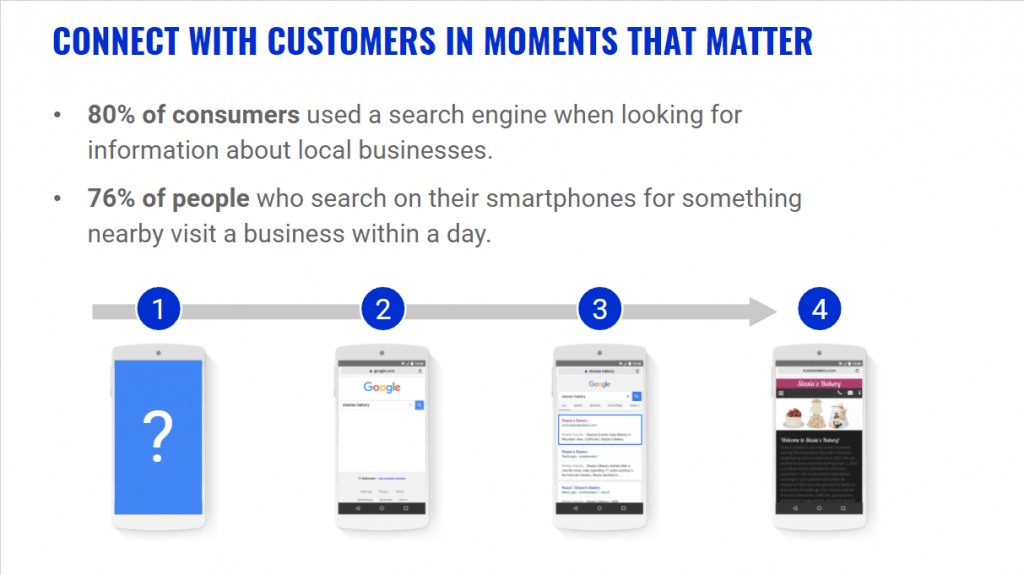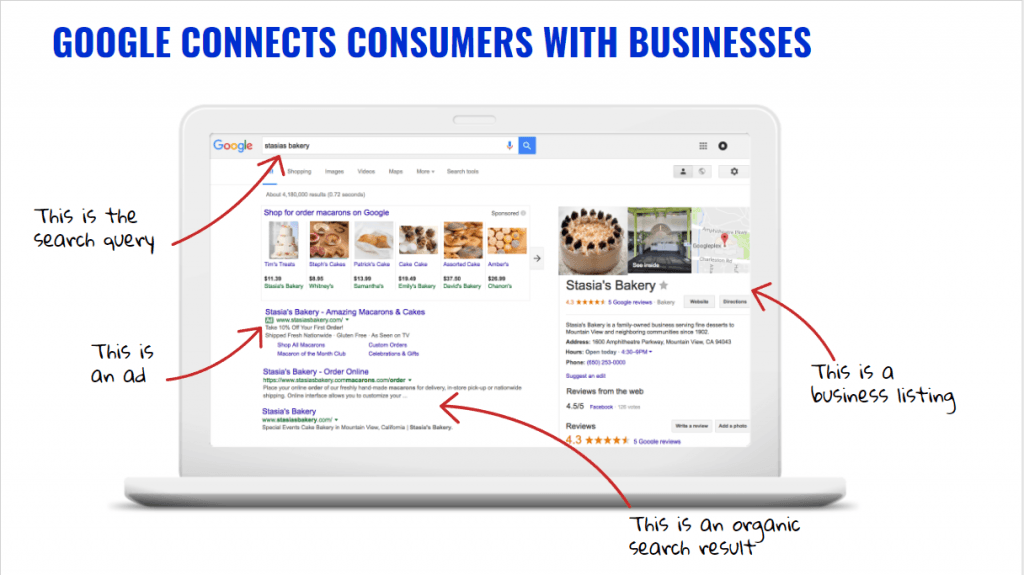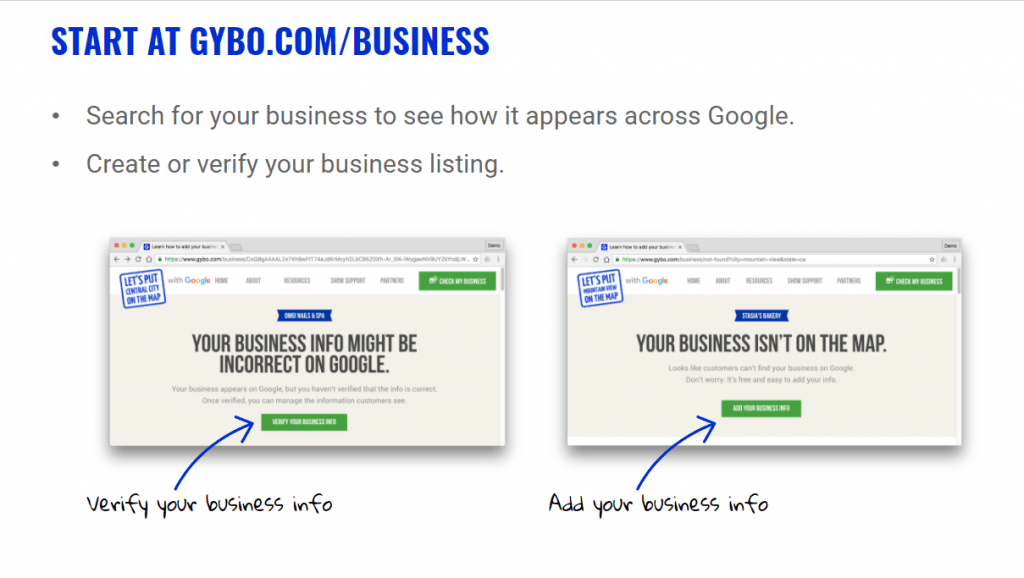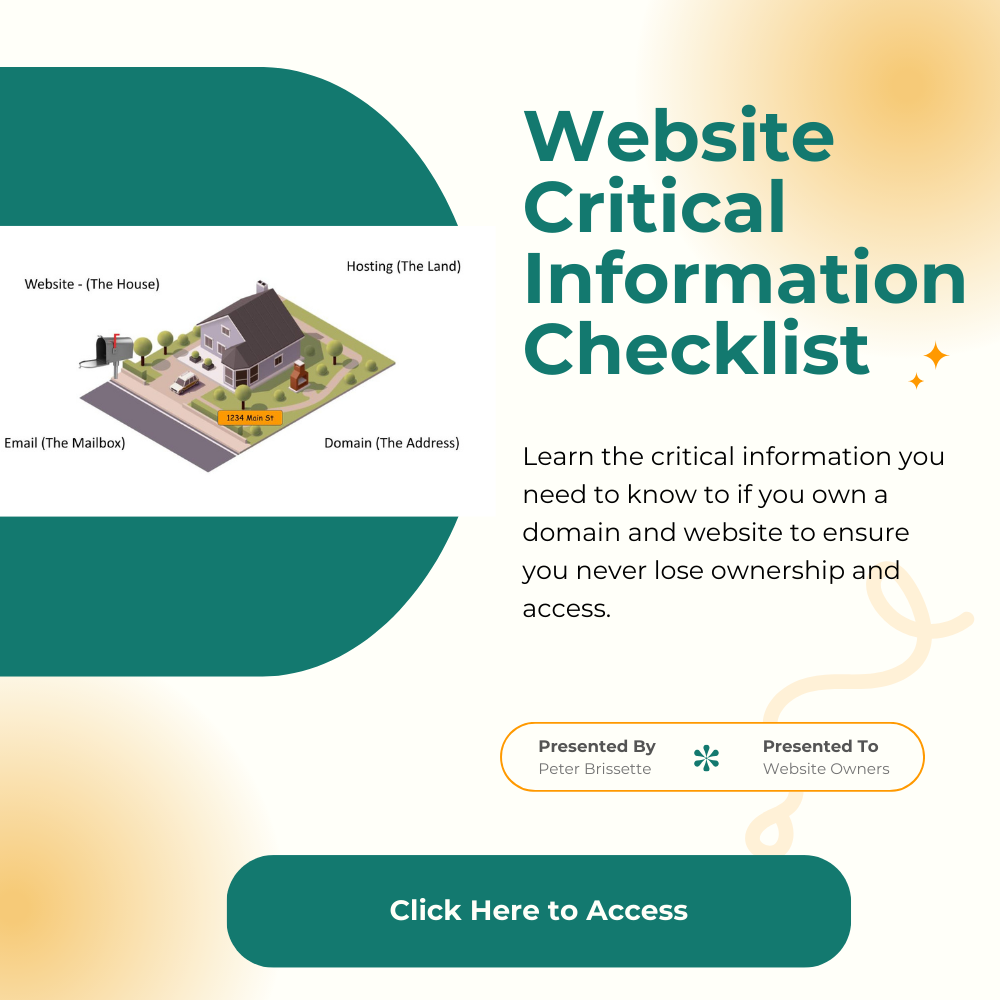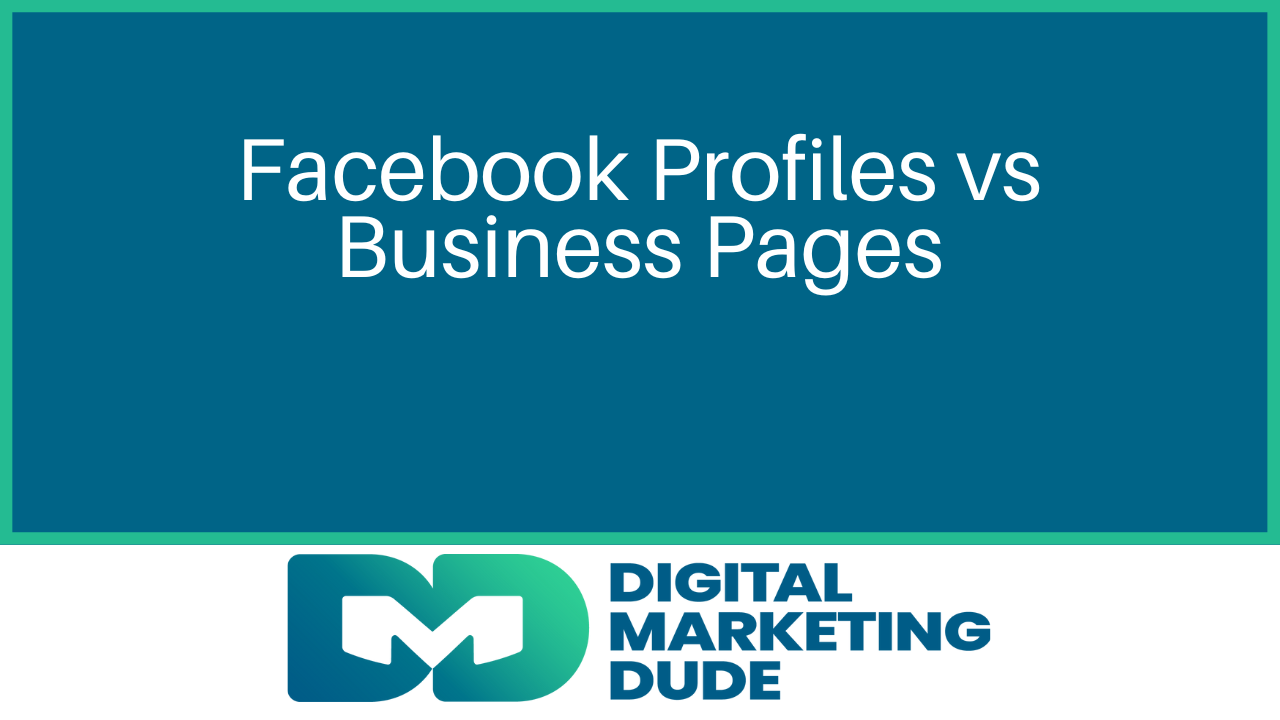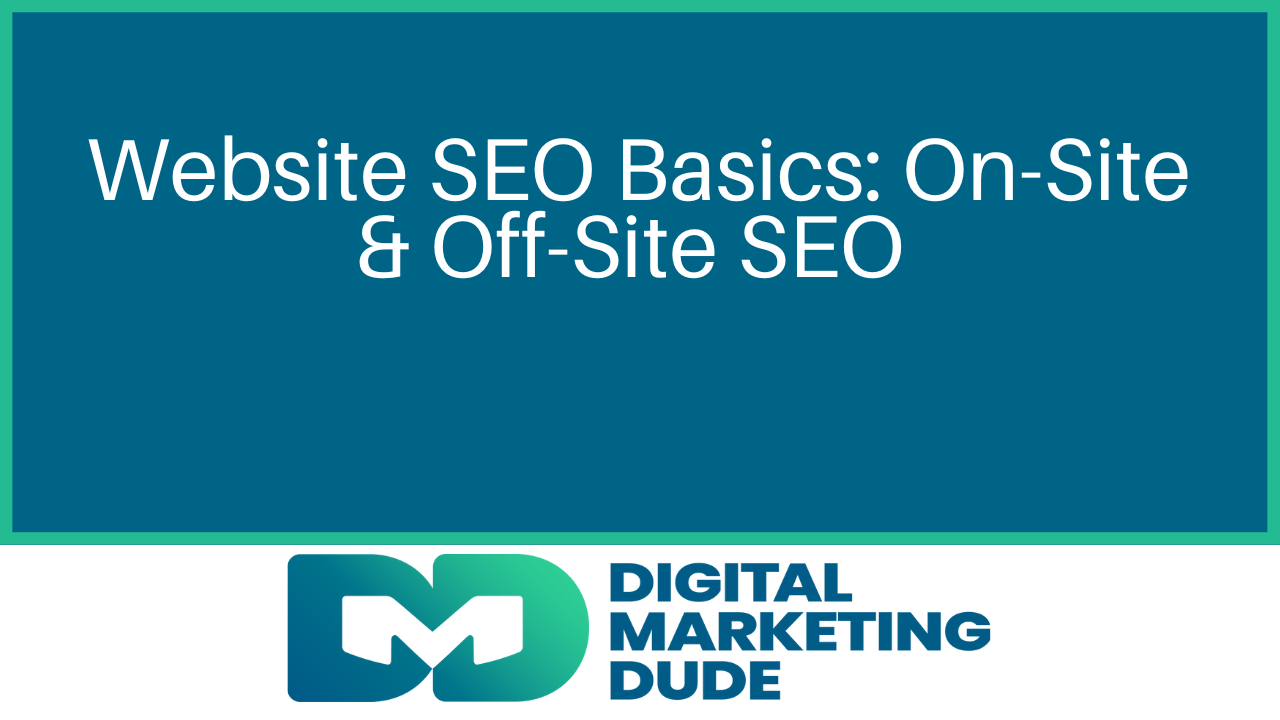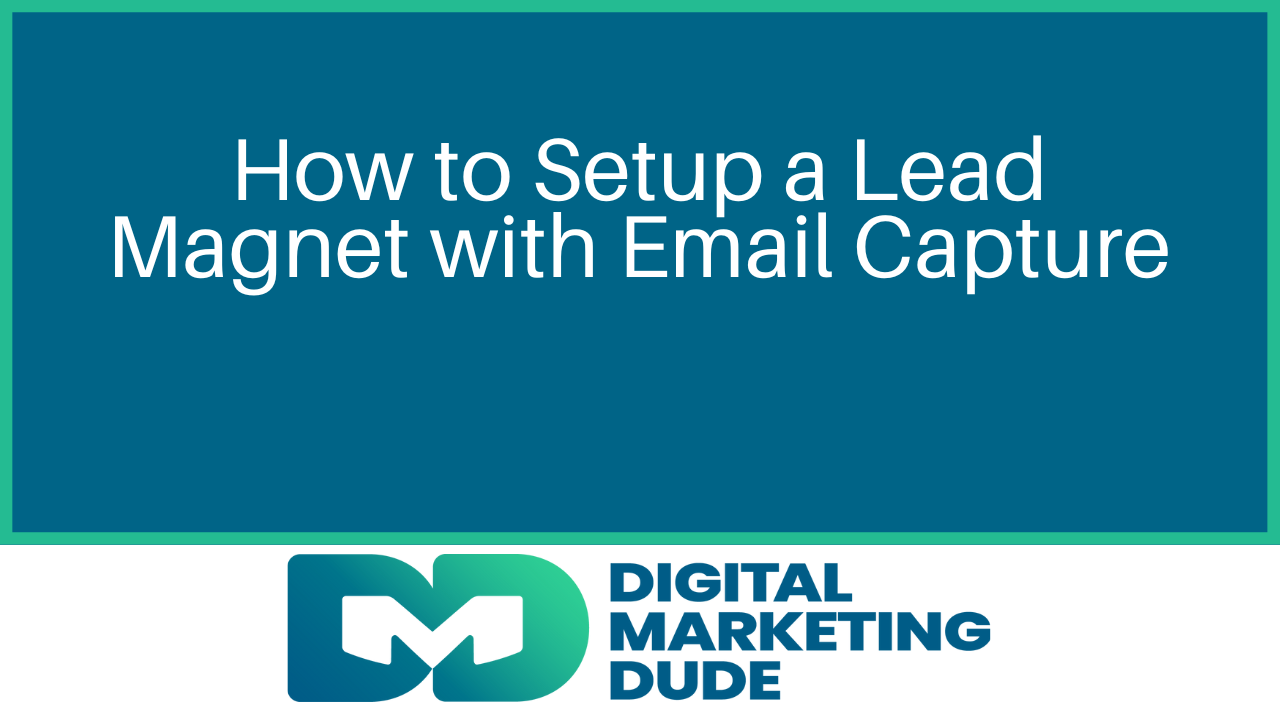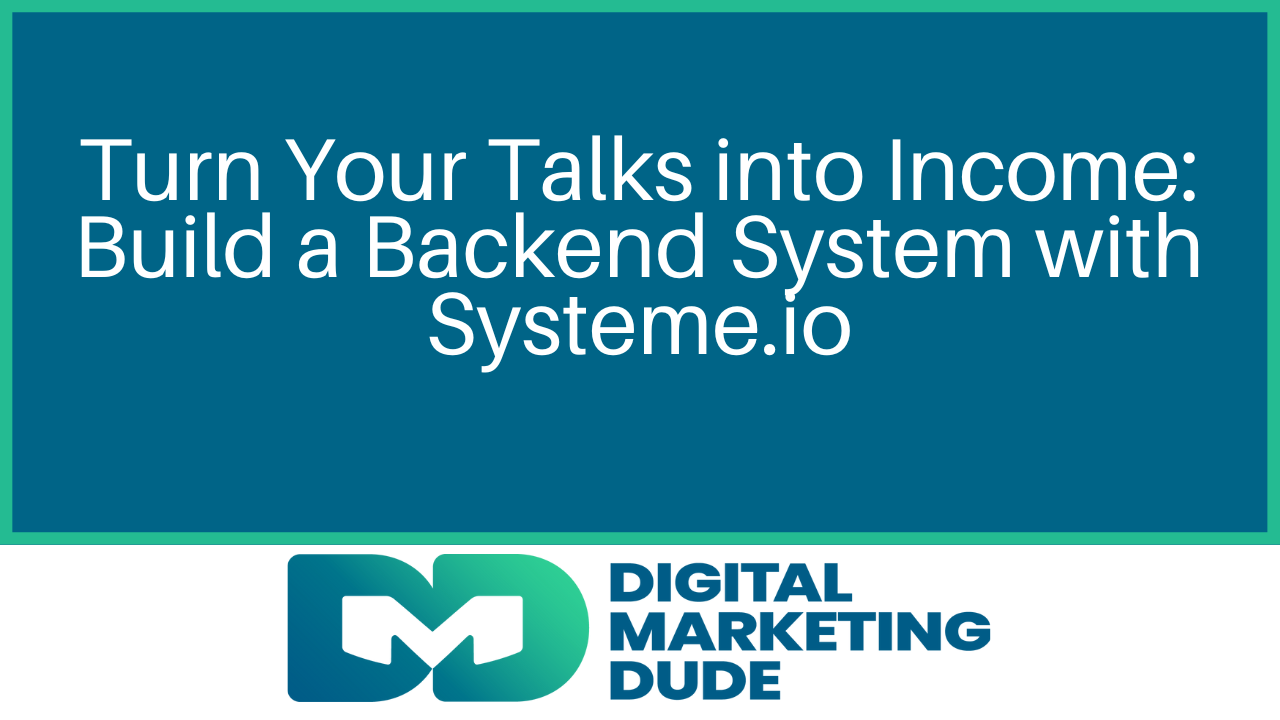The Not-So-Secret Secrets that Google Wants You to Know
Peter Brissette • August 28, 2017
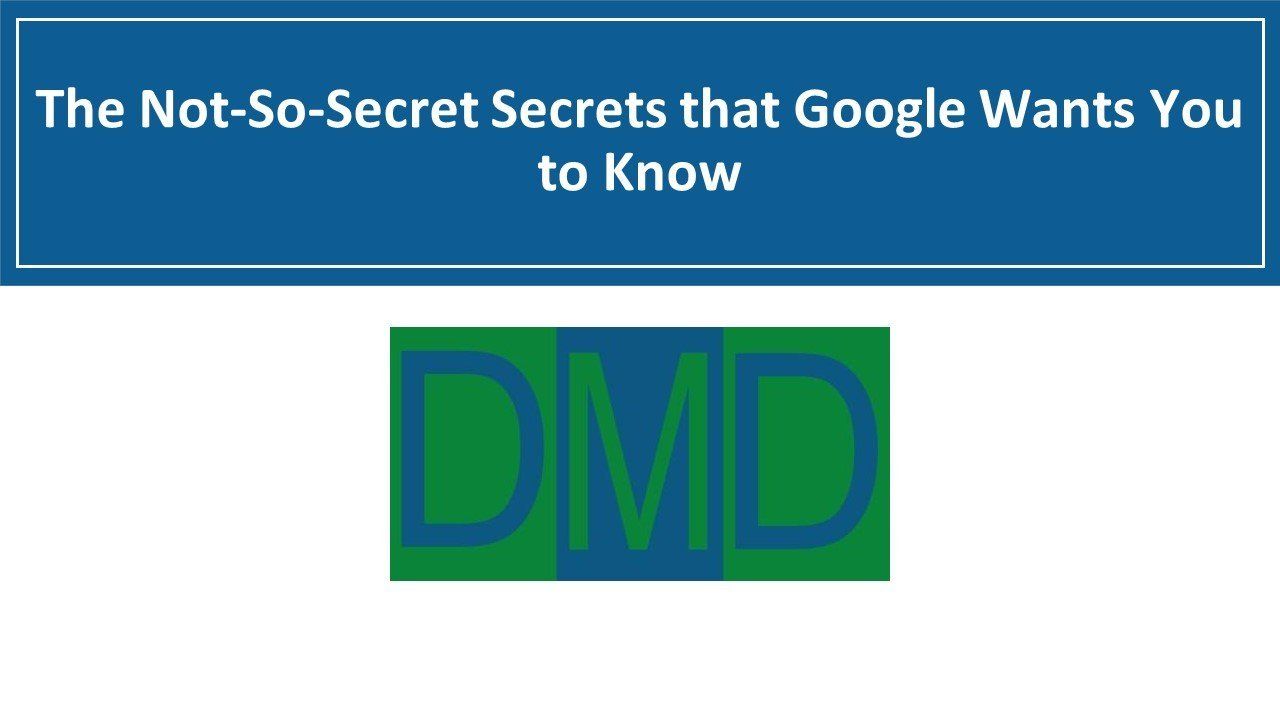
What I want to share with you today is an excerpt from my presentation”Grow Your Business Online”. I call it The Not-So-Secret Secrets that Google Wants You to Know About in regards to what you need to do with your website. Eighty percent of this presentation came directly from Google and the SBDC (Small Business Development Center) which is a partner with Google on helping local businesses get their Google Maps listings updated, and that’s something that we do through the SBDC.
So as a part of that training program, they give you this presentation and say, “Here’s what you need to go and share with businesses.” So this is not based on my interpretation– this is directly from Google, the source.
The first thing you have to do on your website, and anything you do online, is answer the question, “How do you actually measure success?” A lot of times we think, “Oh, how many friends do I have? How many likes did I get? How much website traffic? Is the traffic going up? Going down?” That’s interesting information sometimes, but that’s not the end goal. Traffic isn’t the goal. Customers is the goal. So we always have to remember, we want qualified prospects.
Everything that we do needs to be built around that. How do I get a qualified prospect? And is the site– is the social– is whatever we’re doing, moving us towards getting a qualified prospect? These things might be interesting information in terms of traffic and subscribers and friend and followers in our total reach, but it’s not necessarily the goal of what we’re trying to accomplish. So this is a good reminder on that.
Google has really taken a mobile-first strategy in how they’re doing everything now, because so much of the search has transitioned away from desktop to mobile. At the point that someone has a need, they grab the phone, they do the search. Google calls it a “zero moment of truth.” How do you show up at that particular moment and those split-second decisions that people are making about your business?
These are just some stats that Google has. 80% of consumers use the search engine when looking for information about local businesses, 76% of people who search on their smartphones for something nearby visit a business within a day. So in terms of local business, what’s happening on mobile is critically important. And how your business will show up on that mobile device really matters, and we’ll talk about this, tips that they have for that.
Below is a typical search query– I’m using a bakery for this example. Someone puts in their search query and then this comes up. You can see has got the little word, “Ad” next to it. They used to be only on the top and on the side, but now they’re only on the top now and on the bottom, so Google has actually made fewer ad options. You used to be able to spend a little less, by choosing to get an ad on the side, but now that’s completely gone, so you have to compete with the top three spots and try to get there as an advertiser. But we can adjust that in the algorithms in our bidding, so you don’t have to advertise. These are organic search results, so this is just the website, but this is the Google Maps listing over on the right.
So how do you get there? If you don’t have the listing, or you don’t have a login to go in and change it, then this is what you need to do: If you go to www.gybo.com/business, you can do a search for your business. Google will probably find it, and then give you the chance then to claim that listing. The way you claim it is through a verification, which is usually a direct phone call. It will call your business phone number, and as long as someone can answer that, it’ll give you a six-digit code. You type in the code, and you’re verified.
If you can’t do it via phone, you can do it via a postcard that Google will send to you through the mail. So you’ll say, “Send me the postcard.” which will take about a week to get to you, and then you can go back in, type in the verification code, and you’re verified. Once you do that, the information you want to appear is going to show up there. A lot of times, the information is out there, but it’s the wrong information because you haven’t claimed the listing and haven’t updated it. So that’s verification.
So what can you do once you’re verified? You can edit all the info. You can add your hours and put in special hours if you’re taking off holidays and things like that. The photos are really a big piece of this. People really look at the pictures. I don’t know why. For some businesses it makes sense, but for other businesses where you would think they wouldn’t care about seeing the pictures. But there’s a dashboard in the back of analytics for this that shows how many people view pictures, how many people got directions, how many people made a call. It’s all tracked in the back end of this. Updating the pictures makes it more relevant. It also helps improve the search results, because Google sees that you have a more updated listing than your competition, then Google will give you a little more preference.
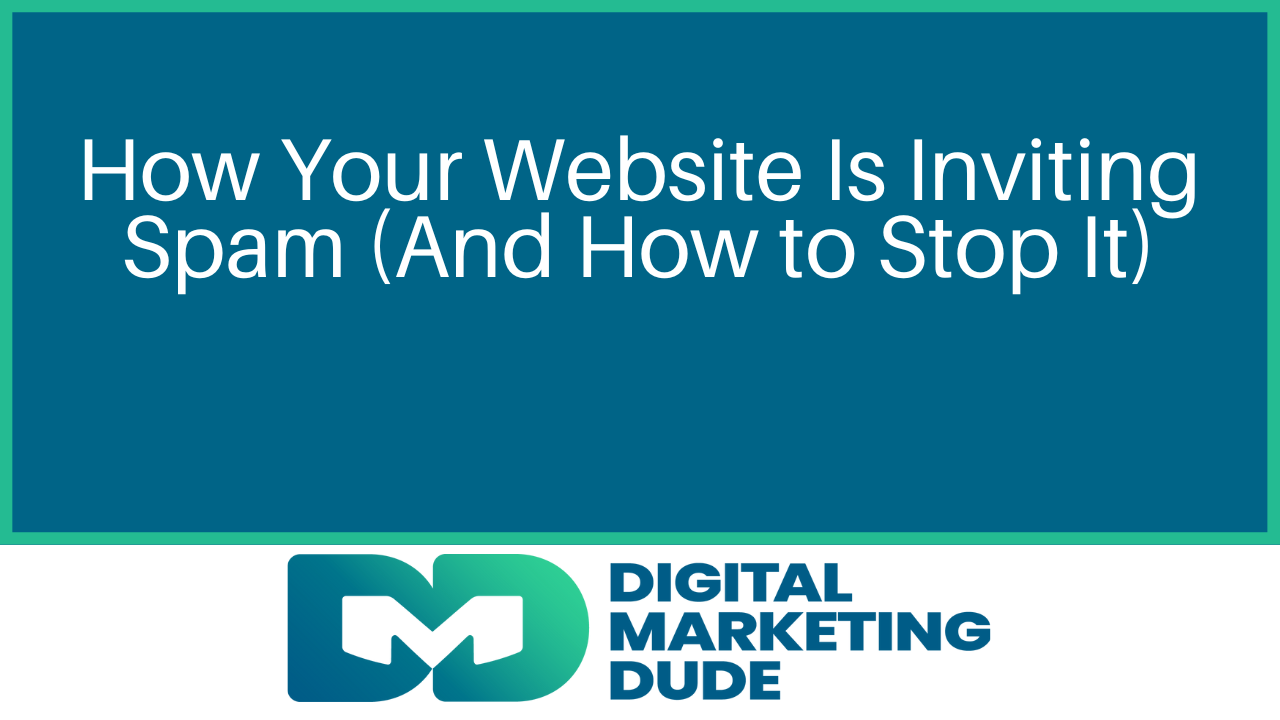
Hey there everybody, Peter Brissette, Digital Marketing Dude. I want to give you an update this month on email and website security, kind of a combination there. One of the things that we’ve noticed over the years is whenever you put an actual email address listed on a website, it usually just gets scraped by spam bots and AI now. And then that email gets used to send you spam. A lot of it can be fairly innocent, but in some cases, you can get a situation like this. Clients started to send me this email that they were getting, and it comes from [email protected] First sign, it’s probably not from us. We send from our dmdude.com email. But they start talking about support and due to one of the vendors that we use for some of our services, which our clients, you know, they don’t know that. So it’s kind of like, what is that? We always do a full SEO setup from the very beginning for all our clients as well, so it’s already been done. There’s nothing else to do anyway. Where they got this email and this information was basically just from the website itself. So we really highly recommend that folks use a form on the website versus just having your email address just sitting on the website, because it can get scraped and used for purposes like that. So we recommend, you know, have a contact form. Contact forms can get spam as well. And so we use, you know, Google’s got a tool for CAPTCHA to help limit the spam that can come in using CAPTCHA. So I’ve got a calendar there to book with, but I also have this basic contact form. It uses the CAPTCHA from Google to help prevent spam from coming in. It still does happen. It doesn’t prevent all of it, but it prevents the majority of it. But if you go through my website, you’re not going to see anywhere where it lists an email address, “Contact us at this email address.” So we recommend just using a form. For our clients, we’re just going to start changing that out and making those changes over time. And then the other thing where we get a lot of spam from as business owners, if you have a business email account, there’s this platform called Apollo that allows marketers to buy access to email lists. So what we recommend, and I’ll put this link in the blog post, is that you go to this link here where it says “Don’t sell my info,” and you can opt out your email address from being in their database. And that will help cut down on the number of spam emails that you might get from that. So to recap, this video is about your email address being actually on your website where it’s visible, or even if it’s a link there that says “click here to email” and then it opens up the email. We don’t recommend that either. We recommend that you use just a form on your website and not have your email address just listed on the website, because AI bots and other tools can scrape that off your website. You wind up in a database like this, and you wind up getting a lot more spam. And it can actually lead to things like this where you’re actually getting fraudulent emails, people trying to actually scam you out of money. So if you have questions about this, just put it in the comments where you see this, and I’m happy to take a look at your own website and make sure that you’ve got the right things in place for email security. Here is the link to Opt Out of Apollo Email Database - Click Here to Opt Out
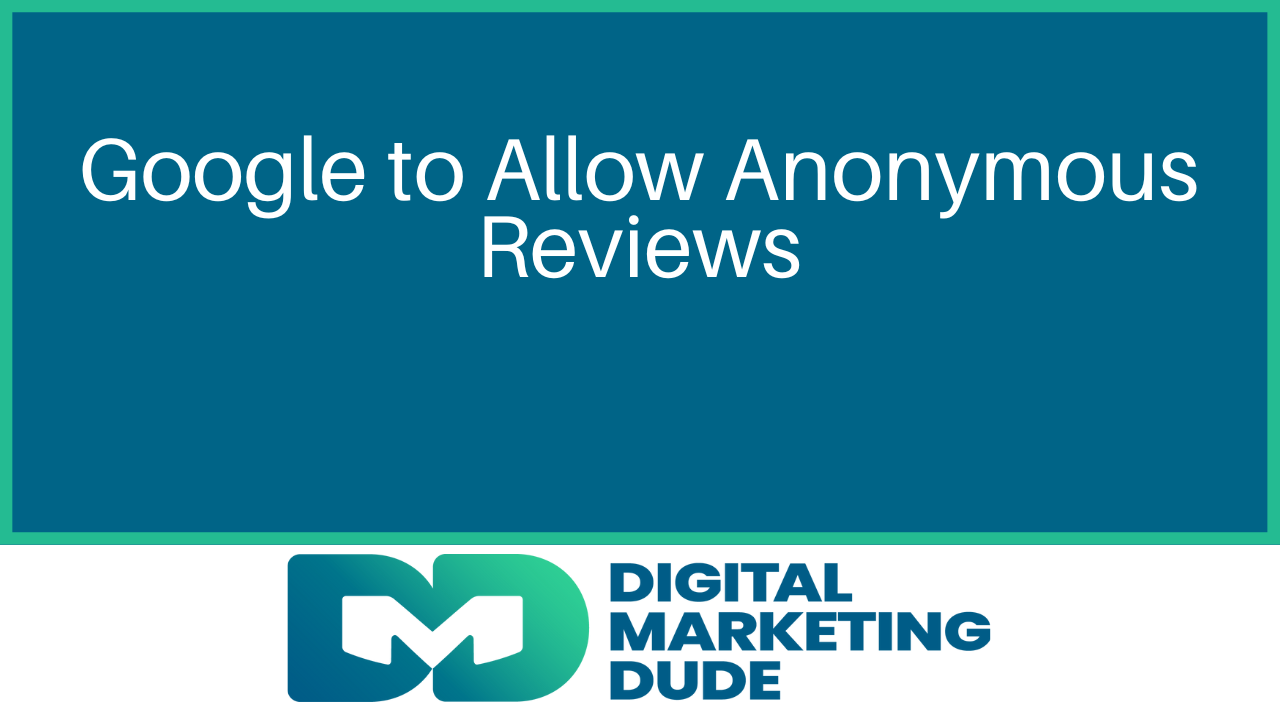
Video Transcript: All right, hey guys, Peter Brissette here, Digital Marketing Dude, and I wanted to share with you something new about Google reviews that you want to be aware of. So Google now will allow users to update their profile, their name on their profiles, so they can be more anonymous. So they're not entirely anonymous, but if they want to use an initial on their last name or shorten their first name, you know, if it's Jennifer and they just want to put Jen or whatever, Dogmom1234. They can change that on their reviews. So that change here just recently was updated means a couple of things. I just wanted to go through this article real quick and talk about that. So what exactly changed in the review system? So Google now allows any user to set up custom display name and profile image, which will appear on all reviews, photos, videos, and contributions across maps and search. It's also retroactive to all the other reviews that they have left as well. So you don't need to have a different Google account to protect your identity. You can just update your profile information. So in practice, what this should mean is that customers can leave reviews under a nickname instead of their full name. All past, future Google Maps contributions, adopt the pseudonym, applies across Q&A, images, and videos. So Google still knows the account behind the review, only the public name is going to be different. So it should allow, in some industries, folks to be able to leave reviews where maybe in the past they haven't. For example, legal services. So in legal services, can you imagine if you were charged for a crime and your attorney helped you and kept you out of jail or whatever it was, and you went on to post, hey, I got charged with shoplifting. And thankfully, my attorney helped me out. You may not want to put your name on that and have it out there. So things like that, mental health is another big area, various medical or health care practices, a lot of health care practices, I think this could affect. Definitely addiction treatment and recovery, financial advisors, and some sensitive home services. The big question is, does this is, The Increase fake review risk. Most people don't think so. Again, this article is from taprocard.com. They certainly don't think so because it's still a real account. It's not like it's a fake account or something like that. So I think it's still going to produce good reviews, but it should increase the number of reviews. And that's really why this matters for business. You should be able to get more reviews. What you want is more frequent reviews, more recent reviews, and that will help build trust from potential customers. And even with all the AI hype and everything that's going on, it's going to help you with your SEO in maps and search, in particular from phones. So how do businesses adjust the review request strategy? How One thing that can be added when you're requesting reviews is to mention if you'd like extra privacy, Google now allows you to leave reviews under a custom display name. And so that can be something that you add in there. I'm also going to put a link here in the post on how to change your Google display name so that you can see that and be able to offer that for your clients as well. So I just wanted to throw out this quick little update. If you have any questions about this, I want to talk about how your reviews are being managed right now. If you're using our services or someone else and would like to talk about that, please reach out. Thank you again, Peter Brissette, Digital Marketing Dude. Visit our website at dmdude.com. Here is the link to the original Post: https://taprocard.com/blogs/article/google-anonymous-reviews-update-2025 Here is a link that explains how to change your display name on google. https://support.google.com/maps/answer/15294714?hl=en
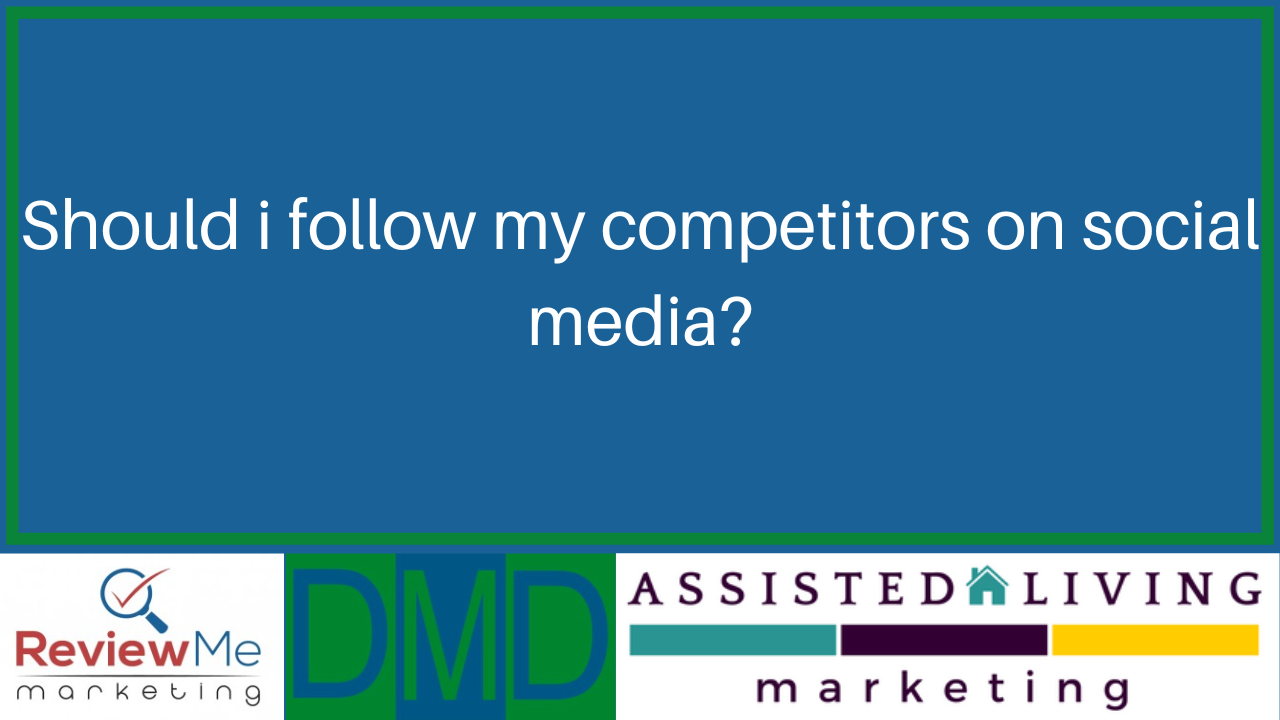
The last question that should we follow our competitors on social media? Sure, why not. You know, you want to see what they're doing and see what's happening there. You know if you're going to be active and you're really trying to use social to build your business then having a good idea what's what your competition is up to is probably important. And you know sometimes what I find with so called competitors is that we you know often times find people that we can collaborate with. It doesn't necessarily mean they are competitors so we work with a number of other marketing agencies and provides some services for them for their clients that they don't necessarily do, but they hire us to do it for them. So like I work with other marketing agencies, so they're not necessarily, you know, your competitor and everything. So but yeah, see what's going on you know, investigate, read up on them, see what they're doing, check out their websites, see what they're ranking for. You know, the more you understand the competitive landscape, the more you know what you should be doing and what you need to do.

And the last question that we have is, can you say more about running a test on TikTok yeah, I so I'm not on TikTok I'm not using tiktok. I wind up watching a lot of TikTok videos on Facebook and the Facebook reels. I think it's fascinating. I find it very interesting. But it's not a platform that I've taken the time to jump on at this point. Again, based on where I'm at with strategy and so forth, it's not a fit for me. But anytime you're using any platform, if you're going to do something, you want to come up with some means of measurement. How am I going to measure success? What does success look like? Is it I, you know, posted a video and I got a thousand views. Is that success you know or is it actually driving traffic and are you tracking how much traffic and then are you tracking what happened to that traffic? Did they fill out a form, did they make a phone call? Like what's the, where do you want that to go? So we really need to step back and think about that whole process. Of creating content, I'm pushing this through to, you know, to my website. And this is what I want to have happen. This is what I wanted the results to be. And then how am I going to track it? How am I going to measure it and do that so anytime you're spending, anytime you're doing something new in particular. Or you're spending any money you need to track it all the way through. All the way through.

The next question that we have is if you have a GoDaddy web page already and are having some issues, are you able to switch over somehow? You can build your website on any other platform and then just you just change the domain where the domain points. So yeah, you can do that anytime. Thank you, Peter.


